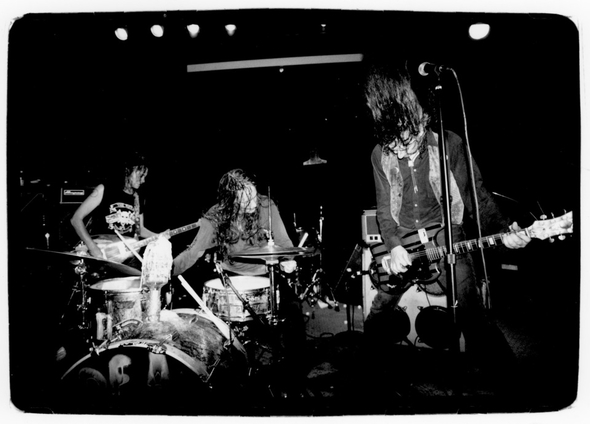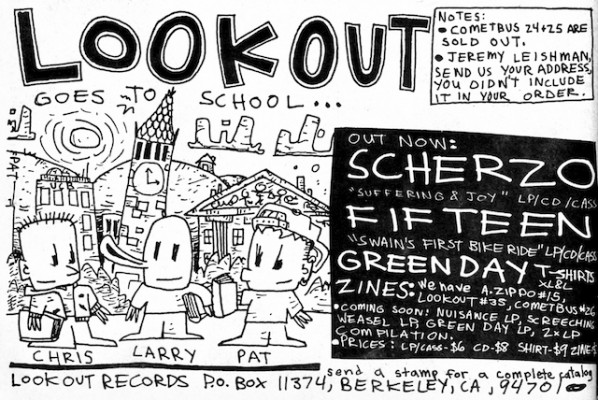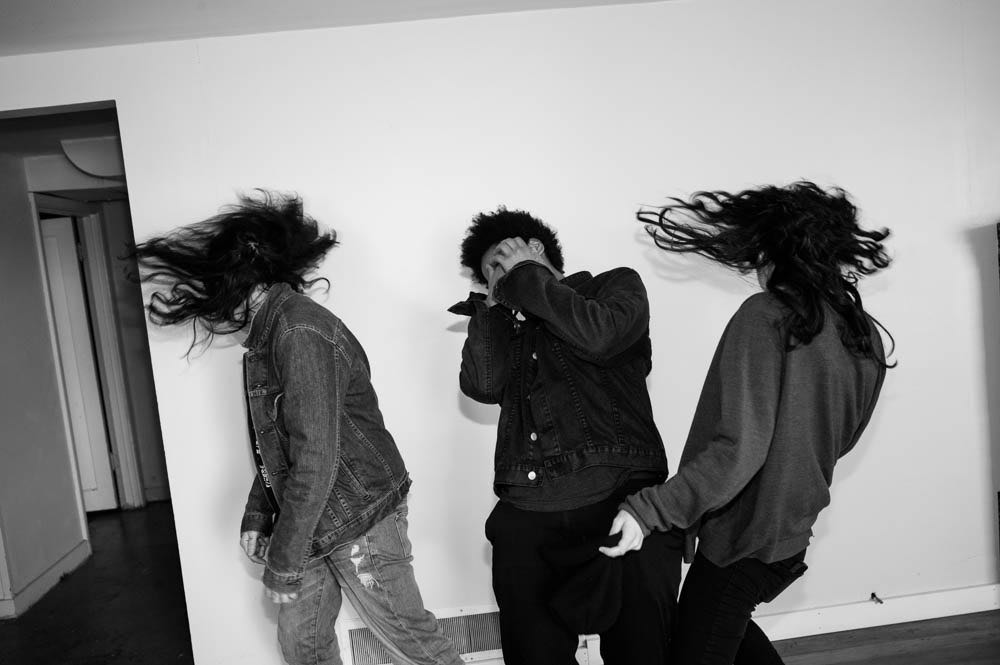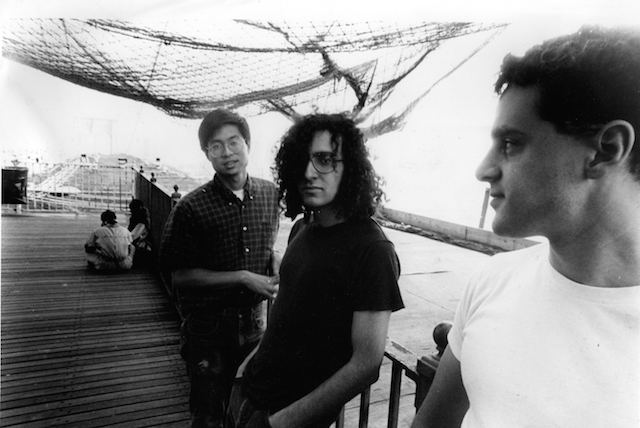The crowd at Club Congress is sparse. A few true believers and some people who are only here because they happened to be here already. My friend and I don’t fall into either category. I told him we had to see this show because it’s important, because I respect tradition, because it’s Dead Moon. They’re setting up right in front of us, out on the floor.
It might seem like a little thing, but it feels huge at the time. These are not artists who insist on their difference from the audience, their superiority. And I’m pretty sure they would not want to be called “artists”, either.
I don’t like to get mystical, but if there ever were a time to throw around terms like “priest” and “shaman”, this is it. Dead Moon is here to lead us out of ourselves. Everyone I know from the Pacific Northwest speaks of the band with reverence. When I told my friend Joel that they were coming to Tucson, he practically screamed at me: “You have to go!” As busy as I was back then, I knew he was right. It’s why I brought my friend, why we’re standing less than ten feet from Fred Cole right now.
Up to then, though, I had only heard the band’s records, ones I didn’t own myself. I’d be riding in a car with a friend, listening to a mix tape, when a song would move me so much that I just had to know what it was. “Dead Moon, man,” my friend would say. “Nothing like them.” After this had happened a half dozen times, I didn’t have to ask anymore. If I heard something new to me that made the whole idea of novelty seem ridiculous; something that made me feel like I could step outside of history and be free; something that suspended my natural impulse to analyze and critique, I was certain it was Dead Moon.
Even now, after listening to their entire catalogue on auto-repeat for a week, in order to mourn the passing of co-founder Fred Cole, I’m hard-pressed to identify individual songs or the albums on which they appear. Part of that is because Dead Moon released so many live albums. Part of it is that their music almost always conformed to one of two basic templates. Either a song was fast or a song was slow. Beyond that, the extreme simplicity of their presentation – rarely has a band deployed less ornament – and Cole’s remarkable voice, rich as a saxophone, imparted remarkable consistency to their work.
These days, the do-it-yourself ethos is being coopted by people who make small-batch furniture and clothes for the “winners” of our increasingly polarized world, the sort of people who plan vacations around the articles they read in Monocle. This trend is especially noteworthy in places like Dead Moon’s home base of Portland, Oregon. But when Fred and his wife Toody started up the band, DIY had a very different aura. It was much harder to take control of the means of production. And those who managed the feat found themselves derided for not being able to achieve conventional success. Somehow, though, Dead Moon persevered long enough to see their stubborn insistence on going it alone rewarded with massive street cred, if not the income that other Northwest rockers achieved.
Perhaps most impressively, Dead Moon discovered a way to release music that entirely escaped the story arcs favored in the industry. An album didn’t have to mark a departure from its predecessor or represent a return to form. Dead Moon never had to return to form because they never lost it to begin with. If they wanted to release another live album with “54/40 or Fight” on it, even though it had appeared on several records already, they just did it. And if the new version sounded just like the previous two or three, all the better.
I stated earlier that I have a hard time identifying individual Dead Moon songs. But the truth is a little more complicated. It isn’t so much that I’m incapable of performing the exercise, so much as that I have a hard time caring about it. In retrospect, everything the band did seems to repudiate the structures that the music industry imposes on artists and fans alike. Dead Moon transcends the imposture of language. Dead Moon takes those words and pours them down your throat like bad liquor. Dead Moon is Dead Moon. Fred Cole may be gone, but his most famous band lives on. Dead Moon is the musical equivalent of that William Faulkner quote: “The past is never dead. It’s not even past.”
And that had to make Fred Cole feel better, bad as he felt these past few years. Because it was in Dead Moon that he was able to distill his two decades-plus of making music – two decades-plus of music, period – down to the very essence of rock and roll. It’s all too easy to conflate essence and origin, imagining that the purest form of something is also its first. Even the best critics make this mistake from time to time. But art does not come from a pure mountain spring. Inspiration bubbles up out of our mental mud. Only when it has time to flow unimpeded for a good long while does it start to run clear. Fred Cole understood that. And Dead Moon was the result of this filtration process.
That night in the early 2000s at Club Congress, Dead Moon must have played all but a few of their favorite songs. That’s what they did night after night, year after year. What I remember, though, is something deeper and more difficult to describe, a sense that every other band I would ever listen to would be putting up wallpaper and hanging decorative art on what Dead Moon had conjured. I’m not saying they were the best band. I’m not saying they were the most original. I’m saying that they made those qualities seem extraneous. And that’s why they will continue to matter long after mega-selling artists have vanished from the news.
Photograph courtesy of Sub Pop Records. All rights reserved.





